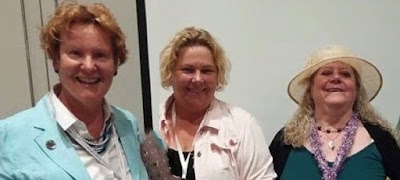 |
| Lorraine |
How
do you choose the setting for a novel? You may know the who, and the when, but
what about the where?
I
set my novel in 1817, at a difficult time in British history. I had men who had
left the army after Waterloo, and who were still looking for their place in the
world of peace, and a heroine who lived detached from society, isolation being
a theme; and I didn’t want grand houses or great wealth or status. These were
ordinary people living through extraordinary events – fiction as life
heightened - and I wanted my setting to suit them.
When
I first began to write what eventually became Mrs Calcott’s Army some fourteen years ago, I knew where the events
should take place. I lived then in
Wimborne, Dorset, a market town which still keeps its medieval street layout. Gentlemen’s
houses abut thatched cottages, ancient houses hide behind slightly more modern
shop fronts, and the Minster stands at the centre, with the Quarterjack marking
the passage of time over the green that used to be a graveyard. Once the figure
of a monk, to celebrate the founding of the Minster as a female (and later joint
female-male) monastery, this had been altered to that of a Grenadier guardsman
during the Napoleonic Wars; and that provided the military link between the
setting and the male characters.
 |
| Wimborne Minster Wikipedia |
The
rivers Stour and Allen run round and through the town, and there are two
parallel roads entering on one side; West Borough, which once led directly to
the West door of the Minster, and East Borough, known locally as Crooked
Borough.
More
important to me, however, was what isn’t there anymore. I lived at Leigh –
pronounced locally as lie – in what was
originally a pair of thatched cob cottages built in the 1780s. A century later,
a second pair of brick cottages was tacked onto one side, and the roofs slated,
so they escaped the scrutiny of developers who cleared all the other cob
buildings on Leigh Common, deeming them unfit for human habitation. An elderly
neighbour gave me a postcard of one of them, with milk churns outside and a cow
in the lane. When the livestock market was held, drovers stopped overnight on
the Common with their cattle – a scene that appears in the book.
One
day I came across a stall selling old photographs of local views. My house featured
in one of them, not because it was especially picturesque, but because it stood
next door to a sprawling thatched inn, the Horse and Jockey. It was a vast and
ancient place of dubious reputation, lying just outside the town boundaries.
Records show that at one time the landlady lost her license for selling beer on
a Sunday. I was told by one who did the work that in the 1930s gas supplies were
fitted into chalets at the back of the inn, whose purpose was not to be
mentioned in mixed company. Digging in
the garden, I turned up a gaming token which, from date and style, attested to
illegal gambling there in the 18th century. There was the stub of a wall with a
hinge where a gate had hung, which once led to the well at the back of the inn.
The right of way remains, though the purpose is long gone.
At
the time that I was writing, banks and mortgage companies were getting rid of
bundles of old deeds – far too much paperwork for them to keep when everything
was computerised. I asked for ours, and they made fascinating reading because
the cottages had belonged to the inn which in turn had belonged to local
nobility; and that fact meant that there was a huge amount of documentation. I
found that before it was the Horse and Jockey, the inn had been called by other
names, including The Flower Pot.
Putting
the sound of the place– Leigh/lie – together with illegal gaming and a feminine
name for the inn, I had the scene for part of my novel. The Stour plays its
role, and I have adapted some areas to accommodate other (imaginary) houses,
but it was the inn which started it all.
Wimborne
– indeed, large parts of Dorset – had a history of smuggling, which is
mentioned in the novel in relation to the inn and to the hero’s disreputable
great uncle, whose house he is visiting. It’s part of the backstory, and may
one day come into its own in another novel.
The
town is still famous for its market, which has been held there since at least the
13th century. I placed this in the
centre of town, on the site of a medieval Market Hall, though at various times
it had been moved out to the perimeter because of the noise and the nuisance.
I
used the facts as I knew them, but it was the spirit of place that mattered most
to me. I needed to be able to plant the characters against a real backdrop, and
to give a flavour of the town as it would have been in 1817.
 |
| a typical Dorset thatched cottage |
Places
change: in the years since I left, the town has undergone something of a
makeover, but it’s just one of many that have happened in the course of its
history. For the purposes of the novel, there’s a glimpse of one moment in
time; and that moment started right outside my own door, with a token found in
the soil, and a picture of what used to be.
buy the book
Twitter @LorSwob






















